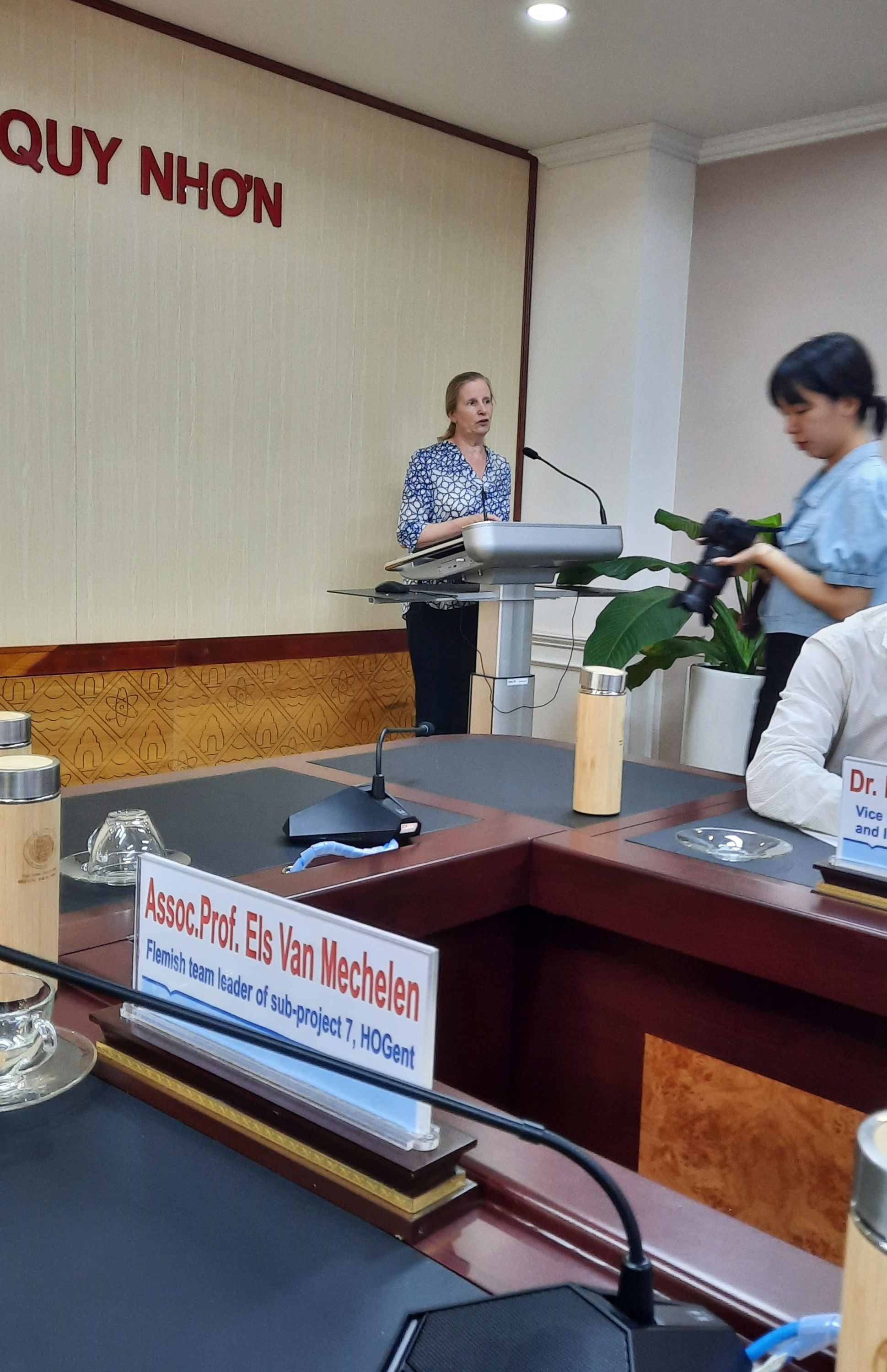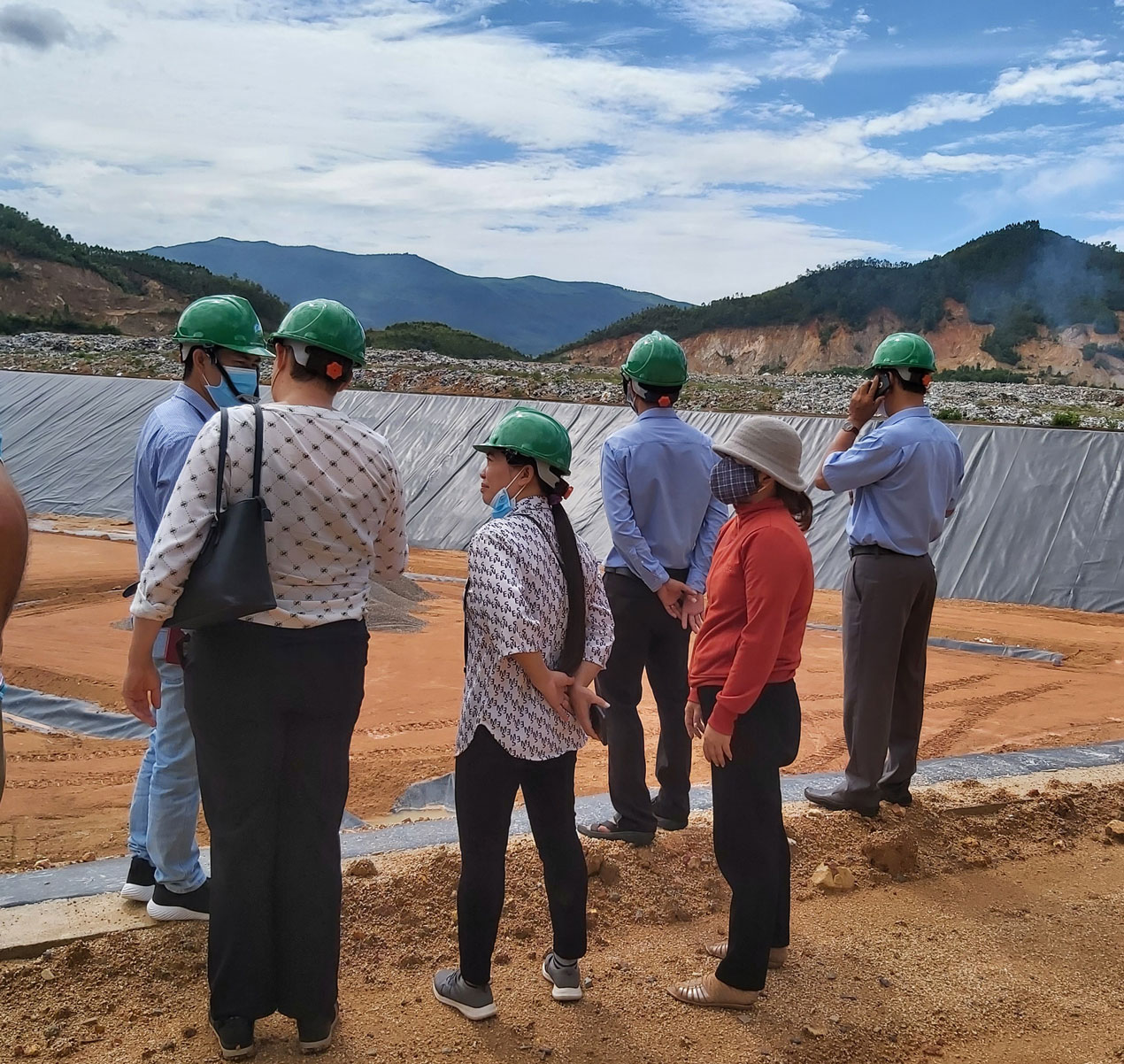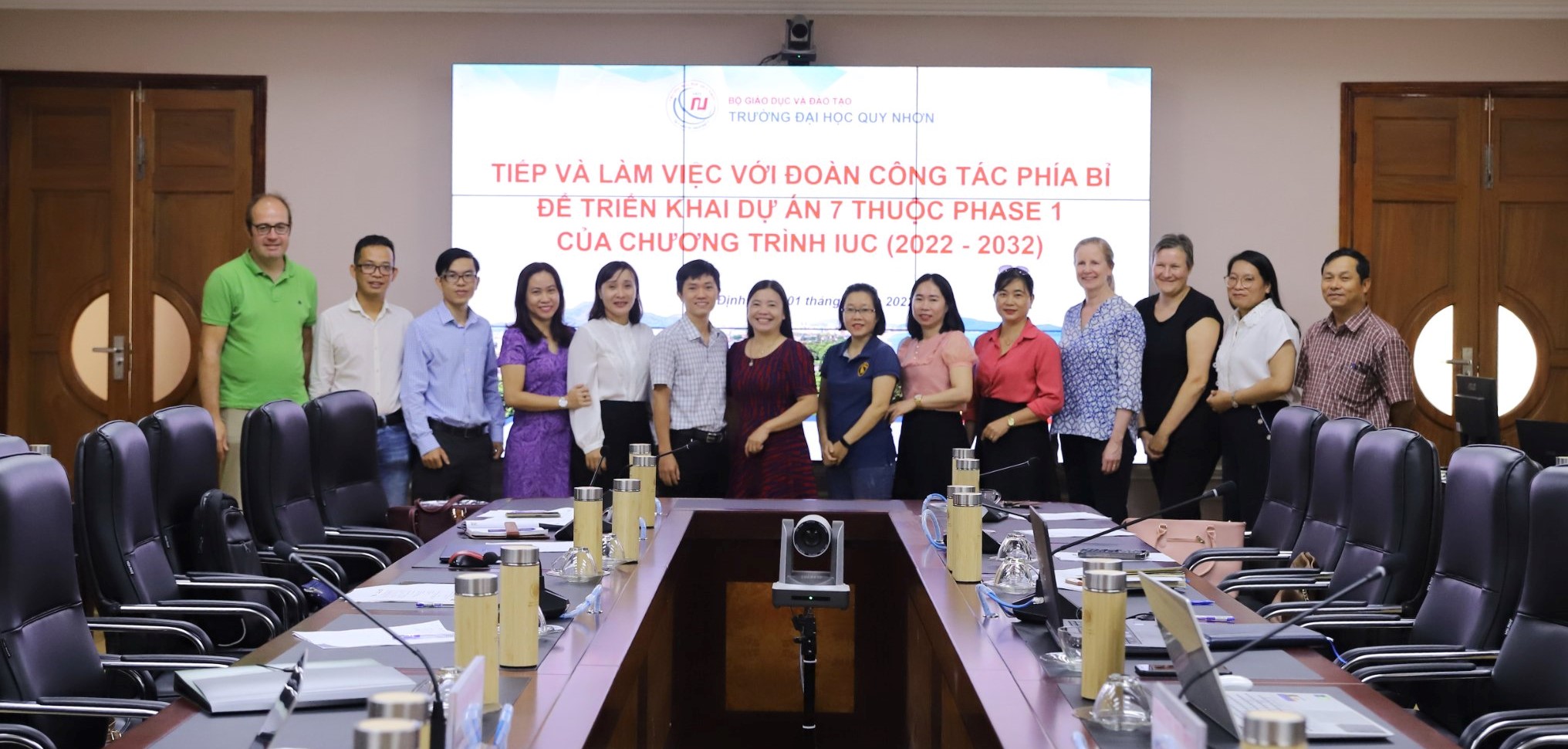HOGENT guides Vietnamese university on the road to safe and sustainable waste and laboratory management.
Over the next few years, HOGENT is participating in an extensive project with and for the Faculty of Natural Sciences of the Vietnamese University of Quy Nhon (QNU). HOGENT focuses on safe and sustainable laboratory practices and waste management on campus. To this end, the Health and Water Technology Research Centre, the Department of Prevention, Environment and Welfare and the Environment and Sustainability Management bachelor programme work together.
Vietnam still has a long way to go in terms of selective waste collection and treatment and good laboratory practices. These are precisely themes in which Flanders has great expertise. So, it is not quite by coincidence that Quy Nhon University came knocking at HOGENT's door.
HOGENT is responsible for the two research components mentioned above, but these are part of a much broader VLIR-UIC programme, which includes several other projects and themes. Besides HOGENT, several Flemish universities are involved in that broad project (see boxed text 'Seven sub-projects').
"You can safely say that Vietnam, and certainly the southern part where Quy Nhon is located, is a developing country", says Els van Mechelen, research coordinator of Health and Water Technology. "So there are many aspects where progress can be made. That's where we want to do our bit."
Els went to Quy Nhon from 29 July to 10 August, together with Yves Ronsse, prevention advisor and environmental coordinator of HOGENT and Professor Vera Meynen of the University of Antwerp, who is an expert in lab safety.
The purpose of this visit was to make a first assessment of the current state of affairs of the labs at Quy Nhon University (QNU) and to get a first impression of their waste policy on campus and in the labs. Based on these findings, concrete plans will be drawn up for the first project year, which starts at the end of September. Besides the labs and the campus, they also visited two waste processing companies (see boxed text 'Waste processing: still a long way to go').
"We were very warmly welcomed. Although communication was not easy, with good will and a lot of perseverance on both sides we discussed some sensitive issues. I think we have established the basis for solid teamwork," states Els.
Unsafe
In the current situation, the local university campus consists of 35 labs, half of which are chemical and half biological labs. In terms of safety and biosafety, there is still a lot of work to be done, observes Yves Ronsse: "For example, there are still unsuitable work tables and there is often a lack of safety storage cabinets. In other words, it is not in accordance with the current standards of GLP (good laboratory practice) and contained use. There is also no overview of who is using what or exactly which products are present and in what quantities. Apart from being inefficient, it is also very unsafe and environmentally unfriendly.
This is where one of HOGENT's missions lies: to make the organisation and practices in the laboratories safe, efficient and sustainable. To this end, Health and Water Technology will organise train-the-trainer courses and researchers from Quy Nhon University will also work in HOGENT's labs for a while, so that they can experience the added value of sound laboratory management themselves. In addition, a course is being developed for QNU students, with an exam linked to it. Students can only gain access to a lab if they pass that exam. The students are also asked to collect cases where things went wrong and, if possible, to record this on video. "By having the students record such situations, they learn from them and we can share those experiences," Els explains. "The ultimate goal is that in ten years' time, it will be as safe, efficient and sustainable to work in the labs at QNU as it is in those at HOGENT."
Complementary
The second component, sustainable waste management, involves students from the Environmental and Sustainability Management bachelor programme. "In the region where the university is located, selective waste management does not yet exist. So neither at the university. Three HOGENT students go, as part of their internship and bachelor thesis, for 12 weeks to the university in Vietnam," explains Linde Raport, lecturer and internship supervisor. "A fourth student starts with a four-week internship at HOGENT's Department of Prevention, Environment and Welfare and then spends the next eight weeks applying the acquired knowledge on waste management in the labs of Quy Nhon University."

Seven sub projects
The HOGENT project is one of seven sub-projects of an overarching VLIR IUC project at the Faculty of Natural Sciences of Quy Nhon University (QNU). Apart from HOGENT also the universities of Ghent, KULeuven, University of Antwerp and UHasselt are involved. Through this large ensemble of 7 subprojects, the Vietnamese university should make progress in both research and practical applications in the field of:
- Predicting natural disasters
- Storage of fruit and vegetables
- E-learning and library management
- Good lab practices and waste management on campus
The subsidy for the HOGENT project amounts to 60,000 euros per year, a budget that goes entirely to QNU. In addition, the Province of East Flanders granted a subsidy of 7,000 euros.
General information about the project can be found on this YouTube video (HOGENT is mentioned at 3’05’’).

Waste processing in Vietnam: still a long way to go
Els Van Mechelen and Yves Ronsse visited two waste processing companies in Vietnam. At the company in the picture, waste is mainly dumped in a deep pit, which is not really waste processing. However, a deep layer of plastic is provided at the bottom and there is also a drainage system to ensure that as few toxic substances as possible leak into the ground. The hope and intention is to install more modern technologies for waste processing in this company in the future.
The students who were given the assignment were selected. Seven students applied for the internship assignment in Vietnam, so a choice had to be made. The selection consisted of a motivation letter and a group interview. In the final selection, complementarity was taken into account: who already has foreign experience and who does not? Who has what previous knowledge? Who takes on which role in group work? Who has experience with project management?
"The students' assignment will be quite a challenge. Moreover, they will be living close to each other for a few weeks, in an environment that is completely unknown to them. So it is even more important that they complement and reinforce each other," Linde says. On site, the students are not entirely on their own: there is cooperation with several local non-profit organisations and of course they are also supported by Linde as an internship supervisor.
Social impact
The students' work will initially consist of basic research: "They will map out the waste flows: what type of waste is there precisely and in what quantities? This will mainly concern plastic packaging, food and green waste and hazardous waste. Partly on the basis of this research, the students will make proposals that must lead to a campus policy on prevention, reuse and recycling. Their information is essential because we build on it," Linde explains. After all, the intention is to carry on organising the internships in the coming years. "In the next five years, we want to focus on raising awareness, gaining insight into the impact of the campus on the environment and sharing knowledge," she says. "In this way, our students create a bit of social impact in Vietnam."
